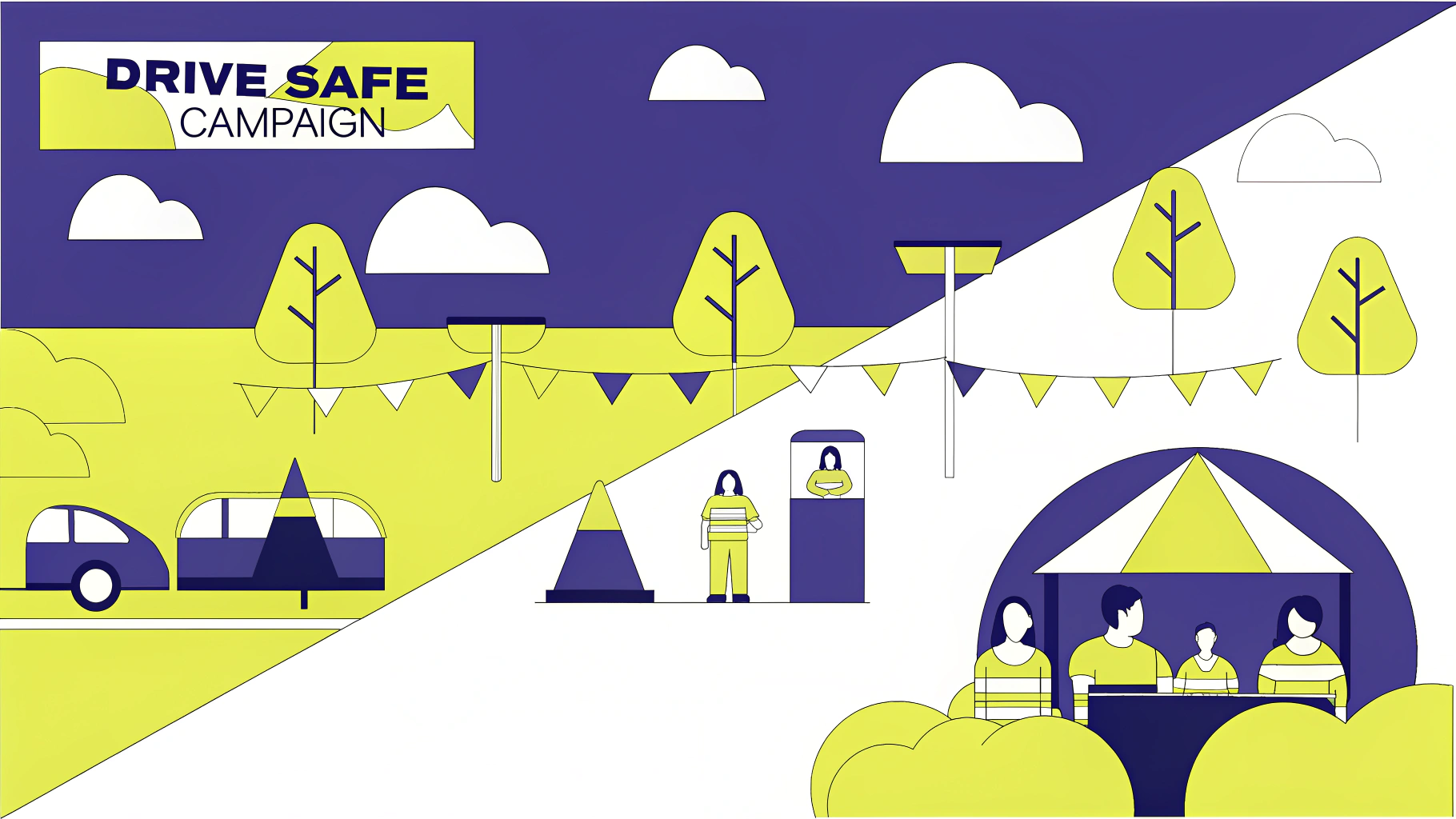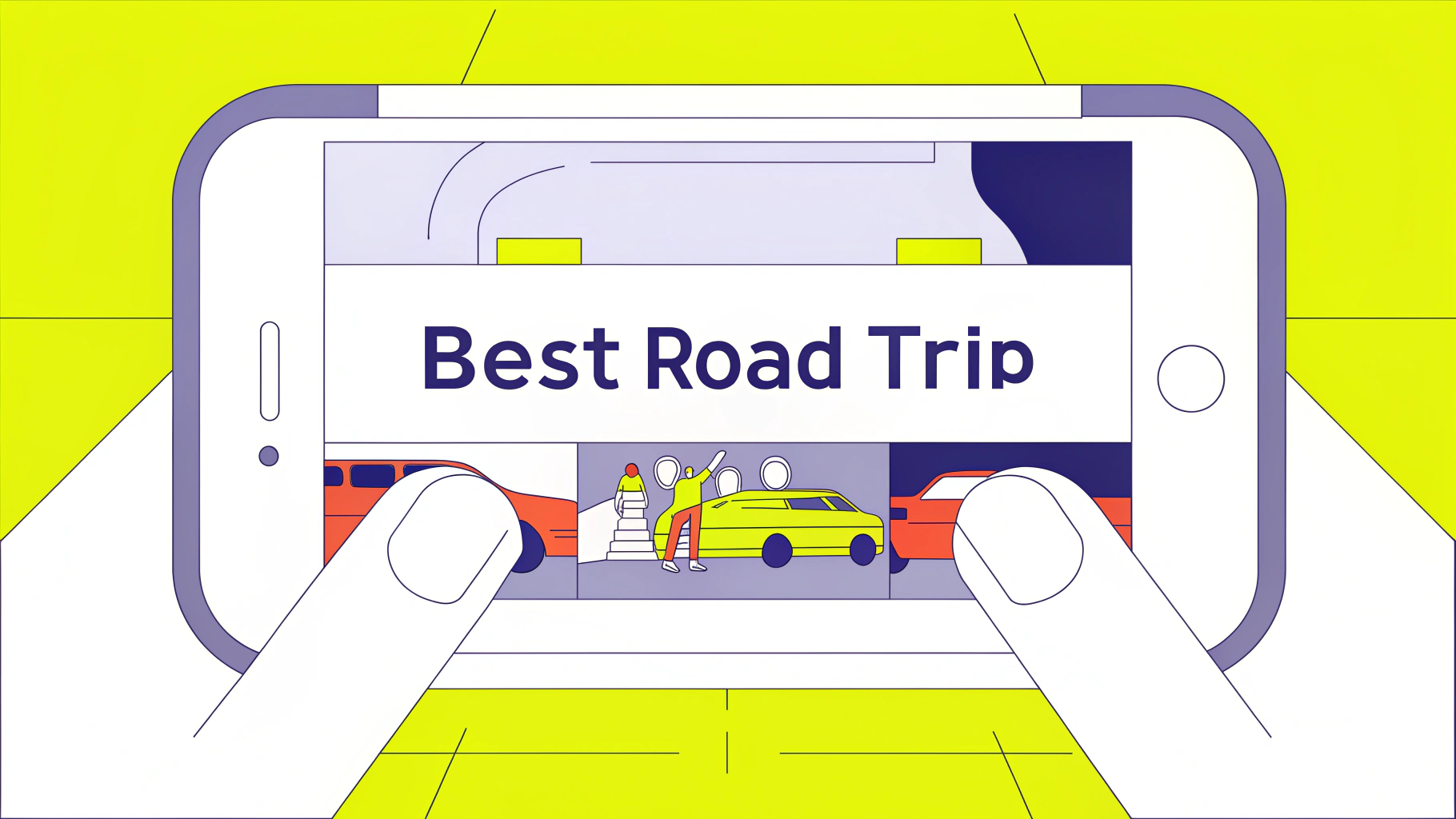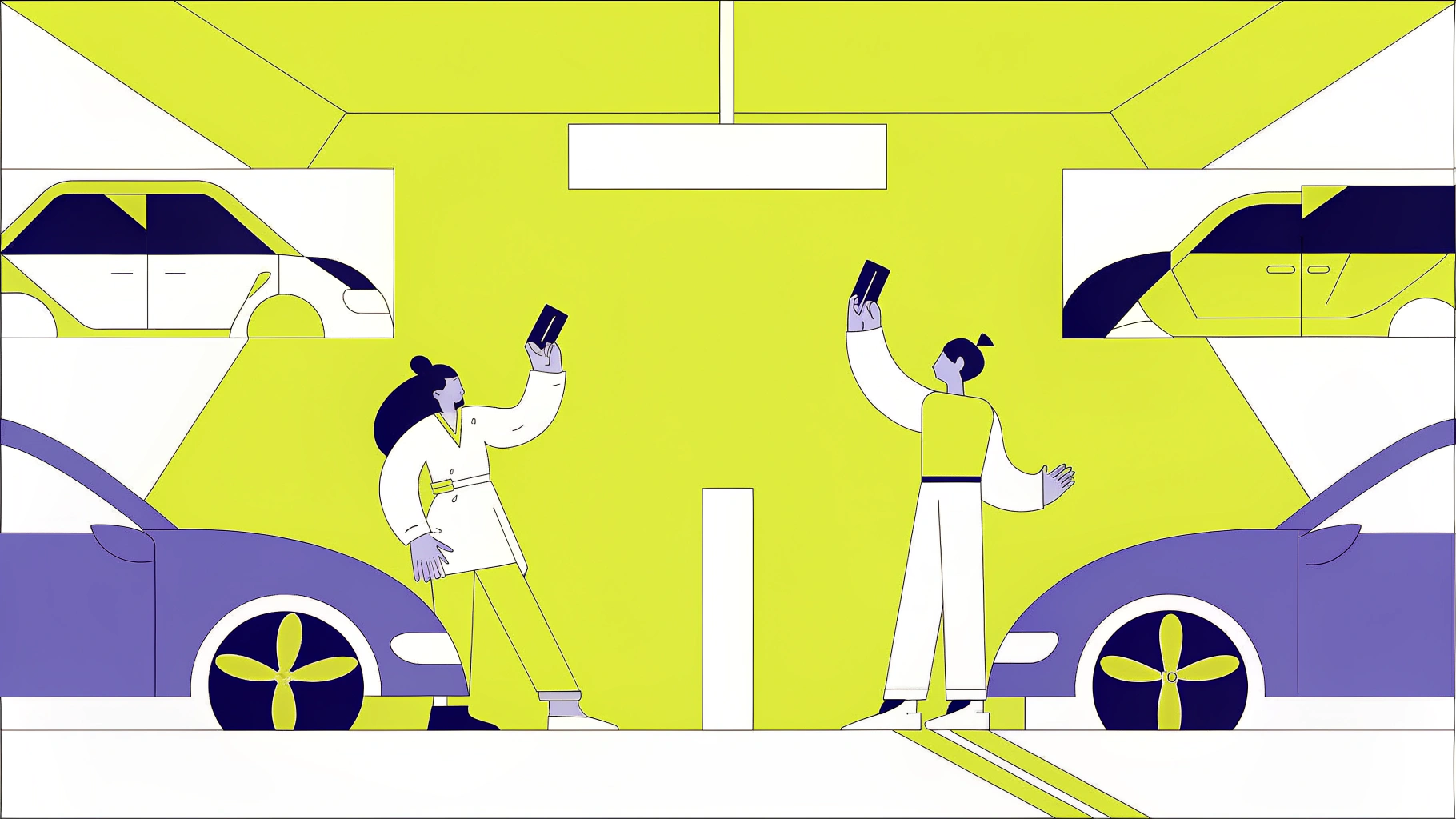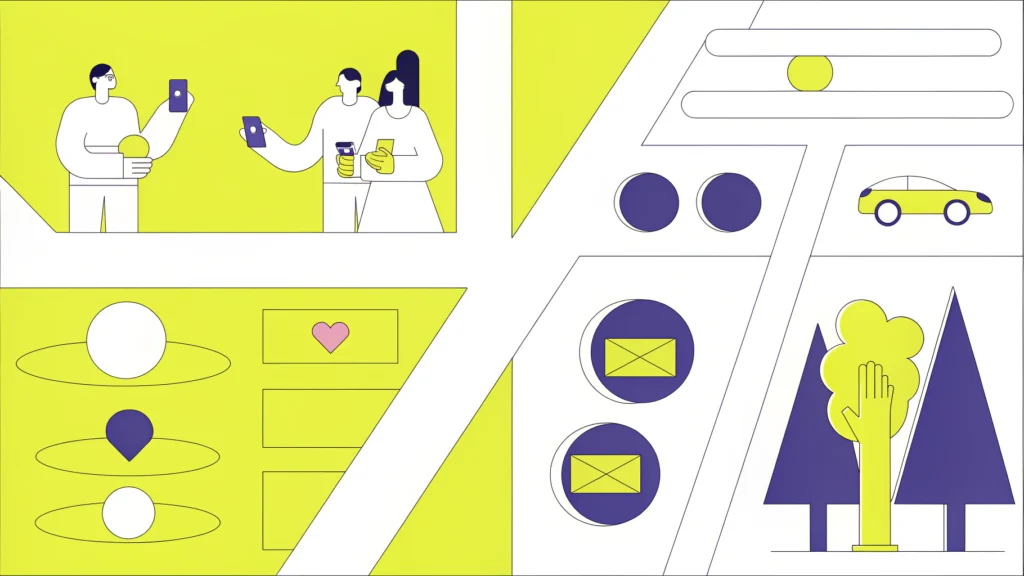Overview
The article outlines ten effective automotive community engagement strategies designed to enhance brand loyalty among consumers. By fostering genuine interactions through initiatives such as:
- Social media challenges
- Educational workshops
- Local events
automotive brands can create memorable experiences. This approach not only builds lasting relationships with their communities but also drives customer loyalty and trust. Ultimately, these strategies serve as a catalyst for deeper connections between brands and consumers.
Introduction
Automotive brands are increasingly recognizing the power of community engagement as a vital strategy for building brand loyalty. By fostering genuine connections through innovative campaigns and interactive experiences, these companies can not only enhance their visibility but also cultivate a loyal customer base. However, the challenge lies in identifying the most effective methods to engage diverse audiences and create meaningful interactions.
What are the standout examples that can inspire automotive brands to elevate their community engagement strategies and deepen customer relationships?
Fresh Content Society: Tailored Community Engagement Strategies for Automotive Brands
Fresh Content Society (FCS) stands at the forefront of strategies that serve as automotive community engagement examples specifically designed for the automotive sector. By harnessing data-driven insights and innovative content, FCS fosters genuine interactions with audiences, enhancing visibility and cultivating loyalty through authentic connections. Notably, FCS has executed successful campaigns that are great automotive community engagement examples, inspiring user-generated content and encouraging customers to share their personal experiences and stories. This approach not only strengthens community ties but also elevates the organization’s credibility. The results speak for themselves: FCS has achieved over 6 million video views and a remarkable 20X return on ad spend (ROAS) for clients such as LINE-X.
By prioritizing engagement through interactive elements like polls and quizzes, vehicle manufacturers can implement automotive community engagement examples that create enjoyable experiences resonating deeply with their audience, ultimately nurturing stronger loyalty and connection. Consider successful companies that have leveraged social media platforms to host live Q&A sessions, which serve as automotive community engagement examples by allowing potential buyers to engage directly with representatives. This personalization fosters trust and enhances brand identity. Furthermore, the incorporation of gamification elements has proven effective in boosting customer participation and satisfaction, transforming the car-buying journey into a more enjoyable and memorable experience.
As Cara K. Coleman from Powersports articulates, ‘Partnering with FCS has proven to be the best decision we made for our social media presence.’ Through these , FCS empowers vehicle companies to navigate the complexities of social media, ensuring they not only reach but also connect meaningfully with their target audiences.

Drive Safe Campaign: Engaging Local Communities Through Road Safety Events
The Drive Safe Campaign serves as an example of automotive community engagement examples, demonstrating how automotive companies can effectively engage local communities through the organization of road safety events. These initiatives typically encompass:
- Workshops
- Demonstrations
- Collaborations with local law enforcement aimed at educating the public on safe driving practices
By actively participating in these events, companies showcase automotive community engagement examples, which not only contribute to social welfare but also position themselves as responsible and caring organizations. Such engagement fosters trust and loyalty among consumers who prioritize safety in their purchasing decisions. Ultimately, companies that prioritize safety not only enhance their reputation but also with their customer base.

Collaborative Initiatives: Partnering with Local Organizations for Greater Impact
Automotive brands can significantly enhance their public involvement by forming strategic partnerships with local organizations, including schools, charities, and non-profits. These partnerships can take various forms, such as sponsorships, joint events, and service initiatives. For instance, a nearby dealership could collaborate with a charity to arrange a car wash, directing proceeds toward local programs. Such initiatives not only provide tangible benefits to the public but also elevate the organization’s profile, showcasing a .
As demonstrated by Fresh Content Society’s collaboration with LINE-X, producing socially relevant short-form video content and engaging regularly with the audience can substantially enhance a company’s social media presence. FCS’s strategic approach involved optimizing engaging moments during the application process and highlighting the exceptional work LINE-X delivers for its customers. Marketing specialists note that companies engaged in service initiatives often experience a positive impact on their reputation, fostering trust and commitment among consumers.
In fact, over 70 percent of global respondents support companies that align with their purpose and values, underscoring the importance of harmonizing collective efforts with organizational identity. Successful partnerships, such as those between vehicle manufacturers and charities, are excellent automotive community engagement examples that demonstrate how societal involvement can bolster customer loyalty and forge enduring relationships with clients. As Joe Chernov aptly states, ‘Good marketing makes the company look smart. Effective marketing makes the customer feel intelligent,’ emphasizing the necessity of engaging with the audience to cultivate a favorable image.

Social Media Challenges: Engaging Automotive Enthusiasts Through Interactive Campaigns
Social media challenges are notable automotive community engagement examples that effectively engage car enthusiasts. By designing interactive campaigns that encourage users to share their experiences, photos, or videos around themes such as ‘Best Road Trip’ or ‘Favorite Car Modification,’ companies can create automotive community engagement examples that cultivate a vibrant community.
Involving participants through contests or giveaways not only boosts engagement but also nurtures a dedicated group of passionate car lovers. Such initiatives significantly enhance visibility, as generates 4.5 times higher engagement than traditional company-created content.
Notable campaigns, like Porsche’s #PorscheMoment, which garnered over 1.56 million interactions, are prime automotive community engagement examples that exemplify the potential of these strategies to forge connections with audiences and bolster customer loyalty within the automotive industry.
Moreover, capitalizing on Instagram’s features—such as Reels, Stories, and community engagement tactics—augmented by strategic hashtag and captioning techniques, can amplify organic reach.
Fresh Content Society‘s validated strategies, as illustrated in the LINE-X case study, achieved over 6 million video views and an impressive 20X return on ad spend, underscoring the transformative potential of effective social media strategies.

Educational Workshops: Building Trust and Knowledge in Automotive Safety
Organizing educational workshops centered on vehicle safety and maintenance is a strategic move that can significantly enhance a company’s reputation. These workshops can encompass critical topics such as:
- Safe driving practices
- Vehicle maintenance tips
- The latest advancements in car technologies
By providing valuable information, companies not only empower consumers but also establish themselves as trusted authorities within the vehicle industry. This trust can translate into increased customer loyalty and repeat business, as consumers tend to return to companies that prioritize their education and safety.
For instance, the SEMA Education Program, scheduled from November 4 through November 6, underscores the ongoing commitment to safety education in the vehicle sector. Furthermore, industry leaders, including Walter Dill Scott, have highlighted the necessity of refining methods to educate the public about safety. Successful vehicle safety workshops are prime examples that not only enhance a company’s reputation but also cultivate a community of informed consumers who feel valued and connected to the organization.

Influencer Collaborations: Amplifying Brand Messages Through Trusted Voices
Partnering with automotive influencers presents a strategic opportunity to amplify a company’s message. These influencers often cultivate loyal audiences that trust their insights and recommendations, positioning them as invaluable allies for businesses seeking to enhance their credibility. Notably, 82% of companies report generating higher-quality leads through influencer campaigns, highlighting their effectiveness. By engaging influencers for product reviews, social media takeovers, or event appearances, companies can access new audiences with remarkable efficiency.
Consider Fresh Content Society’s innovative approach to social media content creation, particularly their expertise in short-form videos and audience engagement; such capabilities can significantly elevate these collaborations. A prime example is Fresh Content Society’s partnership with KFC, where they orchestrated a creative YouTube campaign featuring professional wrestlers to promote KFC Chicken Strips. This initiative not only leveraged influencer involvement but also illustrated how dynamic content can resonate with audiences, fostering a deeper commitment to the brand.
Similarly, Ford’s collaboration with lifestyle influencers effectively showcased the Ford Escape, utilizing the influencers’ reach to engage their audience compellingly. BMW’s partnership with prominent automotive YouTubers significantly heightened brand awareness and consumer interest. These collaborations can yield authentic endorsements that forge deeper connections with consumers, serving as automotive community engagement examples that ultimately enhance customer loyalty and drive sales.
To maximize the impact of influencer collaborations, companies must establish clear objectives for their , which can include automotive community engagement examples, ensuring alignment with overarching marketing goals. This strategic approach not only enhances engagement but also drives measurable results.

Sustainability Initiatives: Engaging Communities Through Eco-Friendly Practices
Engaging populations in sustainability initiatives serves as automotive community engagement examples that are crucial for automotive companies seeking to enhance customer loyalty. By embracing eco-friendly practices—such as promoting electric vehicles, reducing emissions, and participating in local clean-up events—brands can create automotive community engagement examples that forge connections with environmentally conscious consumers.
For example, organizing a tree-planting event not only invites community involvement but also underscores the organization’s commitment to sustainability. Evidence supports this approach:
- 97% of sustainability-minded drivers would consider switching manufacturers for a more eco-friendly vehicle.
- 64% prefer their next vehicle to be a new-energy option.
Successful initiatives in the automotive sector, including automotive community engagement examples like the City of Ann Arbor’s and Cincinnati’s projected operational savings from EVs, demonstrate the effectiveness of sustainability efforts in fostering customer allegiance. By positioning themselves as leaders in environmental responsibility, car manufacturers can cultivate stronger ties with their communities and inspire lasting loyalty.

Community Events: Creating Memorable Experiences to Strengthen Brand Loyalty
Automotive community engagement examples, such as arranging local events like car exhibitions, family fun days, or charity drives, enable automotive companies to forge memorable experiences for consumers. These gatherings not only promote in-person interactions—essential for cultivating personal connections—but also strengthen customer loyalty. For instance, a dealership could host a local car show featuring classic vehicles, which serves as one of the automotive community engagement examples, inviting community members to showcase their cars and partake in a day filled with engaging activities. Such events are excellent automotive community engagement examples that enhance visibility and foster a sense of belonging among participants, deepening their emotional ties to the organization.
Research from S&P Global Mobility indicates that 85% of consumers are more inclined to support companies that engage in experiential marketing. This statistic underscores the significant impact of these interactions in nurturing commitment. Moreover, successful campaigns like Kia’s Power to Surprise demonstrate that well-executed public involvement can generate over 130 million impressions and 460 media stories, showcasing the campaign’s influence on brand recognition.
By crafting unforgettable experiences, vehicle manufacturers can substantially boost customer loyalty and support. To implement these strategies effectively, marketing directors should consider into their event planning, ensuring that the experiences resonate with their target audience.

Feedback Mechanisms: Listening to Community Needs for Continuous Improvement
Implementing effective feedback mechanisms—such as surveys, suggestion boxes, and online forums—serves as automotive community engagement examples, enabling automotive companies to actively listen to their audiences and adjust their strategies accordingly. By seeking customer feedback, companies can identify areas for improvement and demonstrate their commitment to meeting consumer needs. For instance, a dealership might conduct a survey following a community event to capture insights on attendees’ experiences and preferences. This proactive strategy not only enhances customer satisfaction but also fosters allegiance, as consumers tend to prefer companies that genuinely value their opinions.
Remarkably, companies that utilize customer insights efficiently can experience substantial enhancements in their marketing tactics. The automotive industry’s overall retention rate stands at 51.2% for the timeframe of April 2024 to March 2025. Moreover, households renting vehicles experience a higher retention rate of 61.6%, emphasizing the significance of comprehending customer segments. Engaging with customers through feedback initiatives serves as automotive community engagement examples that can lead to a deeper emotional connection, ultimately driving repeat business and enhancing brand reputation.
As highlighted by S&P Global Mobility, obtaining new customers can be five to twenty-five times more costly than keeping current ones. This underscores the importance of through effective feedback systems. Companies that prioritize customer engagement not only improve their retention rates but also solidify their market position, demonstrating the undeniable value of listening to consumer voices.
Long-Term Engagement: Building Lasting Relationships with Automotive Communities
Building lasting connections with automotive groups relies on a commitment to long-term automotive community engagement examples. Brands can cultivate loyalty by actively participating in local events and utilizing automotive community engagement examples, ensuring clear communication, and delivering ongoing value through informative content and resources. For instance, Fresh Content Society (FCS) has illustrated the transformative power of effective social media strategies, achieving over 6 million video views and an impressive 20X return on ad spend (ROAS) for LINE-X. These metrics underscore the to enhance group involvement and foster customer loyalty.
Establishing a rewards program that recognizes customers for their ongoing participation—such as attending events or providing feedback—can significantly boost customer retention. Research indicates that successful reward programs in the automotive industry are prime automotive community engagement examples that not only elevate customer satisfaction but also cultivate advocates within communities. By nurturing these connections over time, automotive brands can develop a devoted customer base that champions their values and offerings, ultimately driving sustained growth and brand loyalty.

Conclusion
Engaging with automotive communities through tailored strategies not only enhances brand visibility but also fosters lasting loyalty among consumers. By implementing effective community engagement examples, automotive brands can cultivate genuine connections that resonate with their audiences, ultimately driving sustained growth and commitment to their offerings.
Throughout this article, various successful strategies have been highlighted, including:
- Interactive social media campaigns
- Educational workshops
- Community events that promote safety and sustainability
These initiatives demonstrate how automotive companies can leverage partnerships, influencer collaborations, and feedback mechanisms to create meaningful experiences and build trust. The impact of these efforts is evident in the impressive engagement metrics and customer loyalty reported by brands that prioritize community involvement.
In conclusion, automotive brands are strongly encouraged to embrace these community engagement strategies. Not only do they enhance reputation, but they also create a loyal customer base. By actively participating in local initiatives and listening to consumer feedback, companies can forge deeper connections with their communities, ensuring long-term success and a positive impact on brand loyalty. Engaging authentically with audiences is not merely a marketing tactic; it is a vital component of building a brand that consumers can trust and champion.
Frequently Asked Questions
What is Fresh Content Society (FCS) and its role in automotive community engagement?
Fresh Content Society (FCS) specializes in tailored community engagement strategies for the automotive sector, using data-driven insights and innovative content to foster genuine interactions with audiences, enhance visibility, and cultivate loyalty.
What are some successful outcomes of FCS’s campaigns?
FCS has achieved over 6 million video views and a 20X return on ad spend (ROAS) for clients, exemplifying the effectiveness of their community engagement strategies.
How do interactive elements contribute to automotive community engagement?
By incorporating interactive elements like polls and quizzes, vehicle manufacturers can create enjoyable experiences that resonate with their audience, ultimately nurturing stronger loyalty and connection.
What is the Drive Safe Campaign and its purpose?
The Drive Safe Campaign engages local communities through road safety events, including workshops, demonstrations, and collaborations with local law enforcement to educate the public on safe driving practices.
How do automotive companies benefit from participating in road safety events?
Participating in road safety events helps companies showcase their commitment to social responsibility, fostering trust and loyalty among consumers who prioritize safety in their purchasing decisions.
What are collaborative initiatives in automotive community engagement?
Collaborative initiatives involve automotive brands partnering with local organizations, such as schools and charities, to enhance public involvement through sponsorships, joint events, and service initiatives.
Can you provide an example of a successful partnership in the automotive sector?
An example is the collaboration between Fresh Content Society and LINE-X, where they produced socially relevant short-form video content that significantly enhanced LINE-X’s social media presence.
Why is aligning with social responsibility important for automotive brands?
Aligning with social responsibility is crucial as over 70 percent of global respondents support companies that share their values, which helps foster trust and commitment among consumers.
How does effective marketing influence customer perception?
Effective marketing not only makes the company look smart but also makes customers feel intelligent, highlighting the importance of engaging with the audience to cultivate a favorable image.

